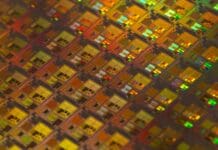This post is also available in:
 עברית (Hebrew)
עברית (Hebrew)
Researchers at Australia’s Deakin University have developed a material that has the potential to save the earth from future oil-spill disasters, and prevent a repeat of the 2010 Gulf Coast BP catastrophe that caused untold damage to the environment and cost some $40 billion.
Scientists at Deakin’s Institute for Frontier Materials (IFM) have spent two years perfecting the material, which absorbs oil like a sponge, and are preparing to trial it in cooperation with industry representatives.
The material is the most exciting development in oil spill cleanup technology in decades, said Alfred Deakin Professor Ying (Ian) Chen, the lead author on a paper that outlines the team’s work.
“Oil spills are a global problem and wreak havoc on our aquatic ecosystems, not to mention cost billions of dollars in damage,” Professor Chen said. “We are so excited to have finally got to this stage after two years of trying to work out how to turn what we knew was a good material into something that could be practically used.”
The team developed the first variation of the material in 2013. Back then it took the form of a powder with strong absorption qualities. but “you cannot simply throw powder onto oil – you need to be able to bind that powder into a sponge so that we can soak the oil up, and also separate it from water,” Professor Chen said.
One of the biggest challenges the team faced was turning the power into a sponge, said IFM scientist Dr Weiwei Lei. “But we have finally done it by developing a new production technique,” he added. “The ground-breaking material is called a boron nitride nanosheet, which is made up of flakes which are just several nanometers (one billionth of a meter) in thickness with tiny holes which can increase its surface area per gram to effectively the size of 5.5 tennis courts.”
“The pores in the nanosheets provide the surface area to absorb oils and organic solvents up to 33 times its own weight,” Dr Lei said.
As well as their absorptive qualities, boron nitride nanosheets are resistant to flames, are flexible and can be used in transparent heat and electrical insulation, and other applications.


























